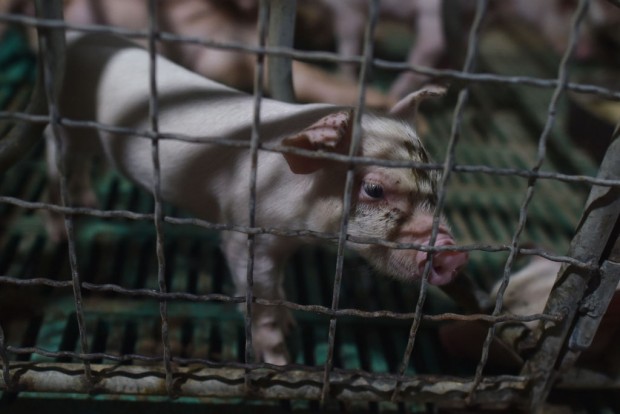World Bank Under Fire for Funding High-Rise Pig Farming Projects in China
By Thea Felicity
Apr 07, 2024 10:12 AM EDT
Apr 07, 2024 10:12 AM EDT

(Photo : GREG BAKER/AFP via Getty Images)
Environmental and animal welfare advocates are raising concerns about the World Bank's financial support for 'hog hotel' factory farms, citing their contribution to climate change and animal welfare issues.
Per The Guardian, a coalition of groups is urging the World Bank to cease funding large-scale industrial livestock operations. The concerns pressed the negative impact of such projects on the environment, food security, and animal welfare.
READ NEXT: IMF, World Bank Approve Historic $4.5 Billion Debt Relief for Somalia
The International Finance Corporation (IFC), a division of the World Bank Group, has been providing over $1.6 billion for industrial farming ventures between 2017 and 2023. Critics argue that these investments contradict the World Bank's commitments to climate action and sustainable development.
Notable projects include the construction of multistorey pig-rearing complexes in China, known as "hog hotels," which have drawn criticism for their cramped conditions and environmental implications.
In addition to the projects in China, the IFC has funded other intensive farming ventures globally, including chicken production in India and Uganda, pig production in Ecuador, and dairy production in Pakistan.
While the IFC has emphasized its commitment to sourcing crops from farmers committed to zero deforestation, campaigners argue that supporting the use of such crops as animal feed is inherently wasteful and environmentally damaging.
World Bank officials have defended their position, asserting that environmental and animal welfare considerations are central to the IFC's financing of farming projects. They argue that large-scale projects can be instrumental in developing more efficient and environmentally friendly agricultural practices.
READ MORE: United Kingdom's 'Most Advanced' Indoor Farming Heads Into Commercial Success
© 2024 VCPOST, All rights reserved. Do not reproduce without permission.
Join the Conversation